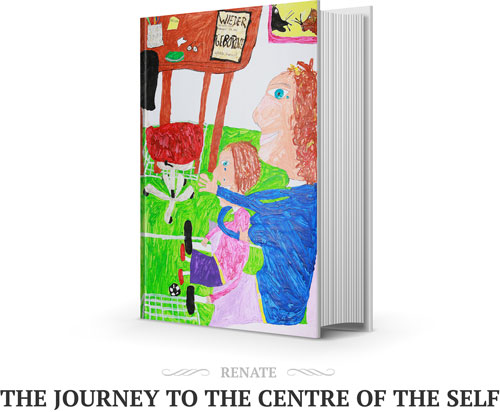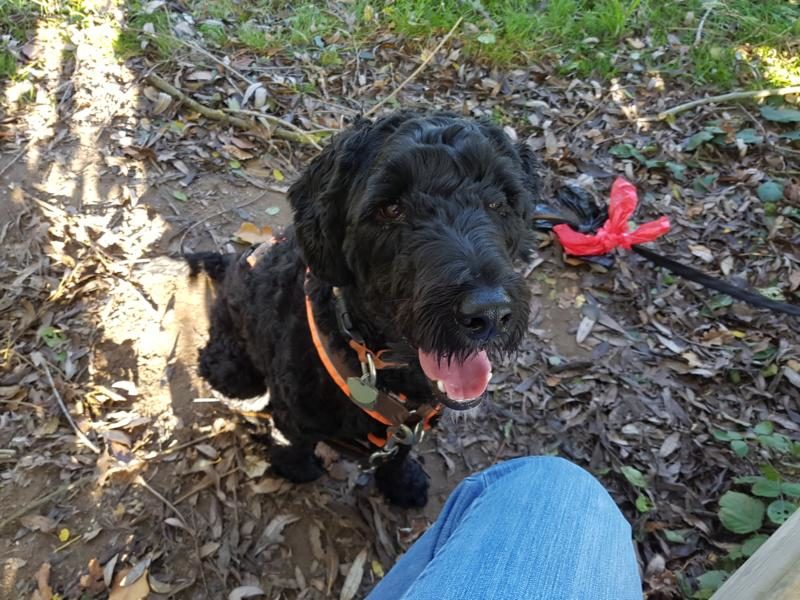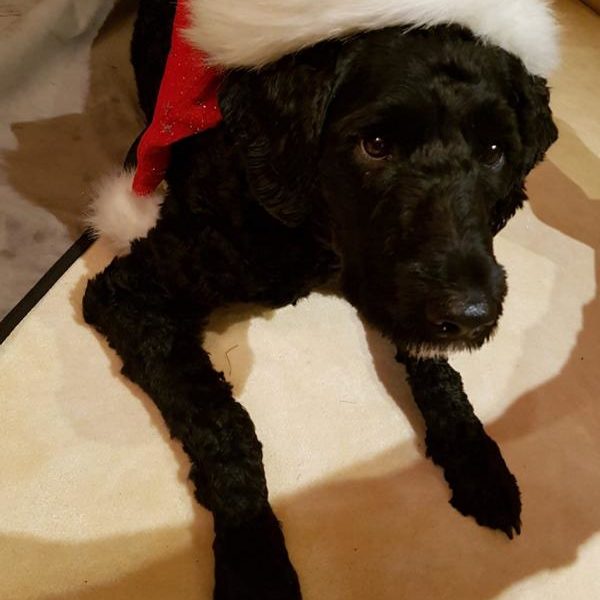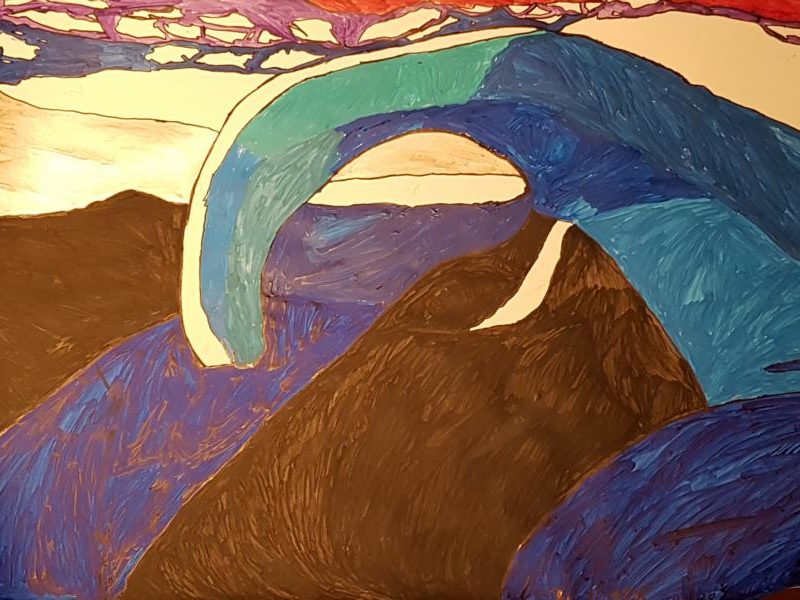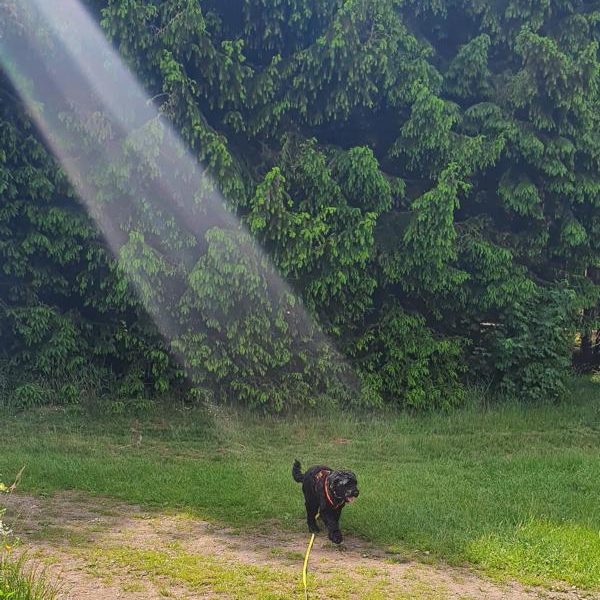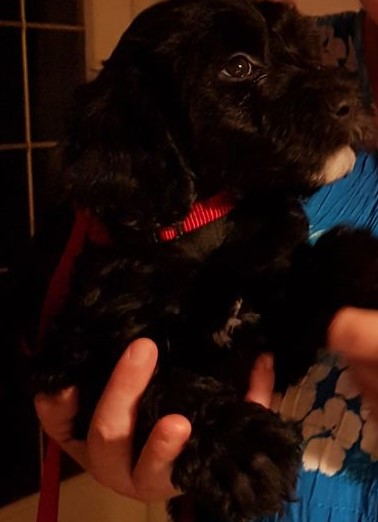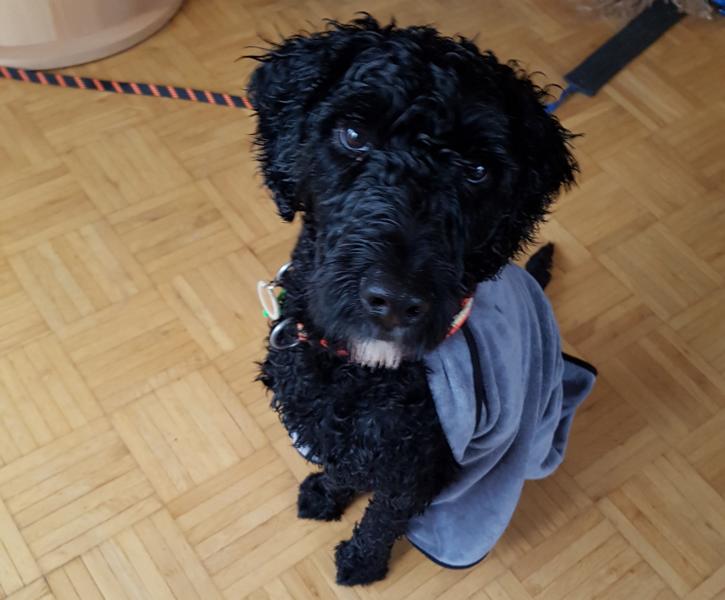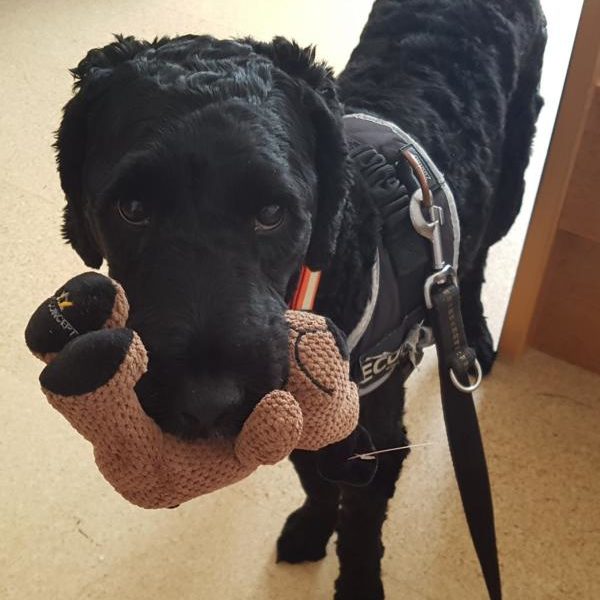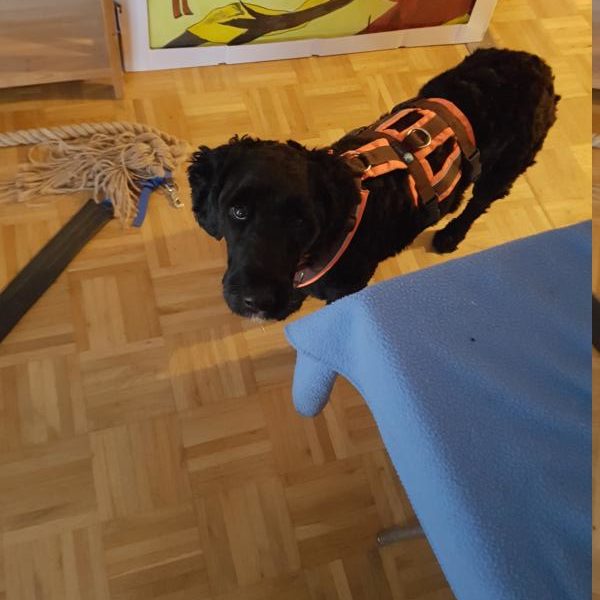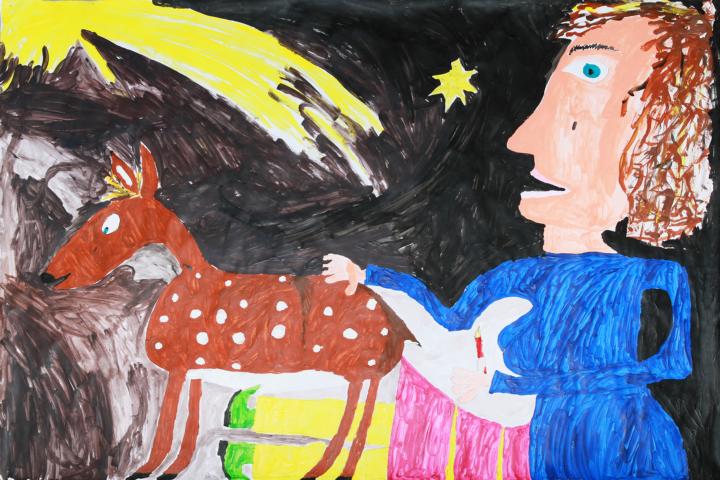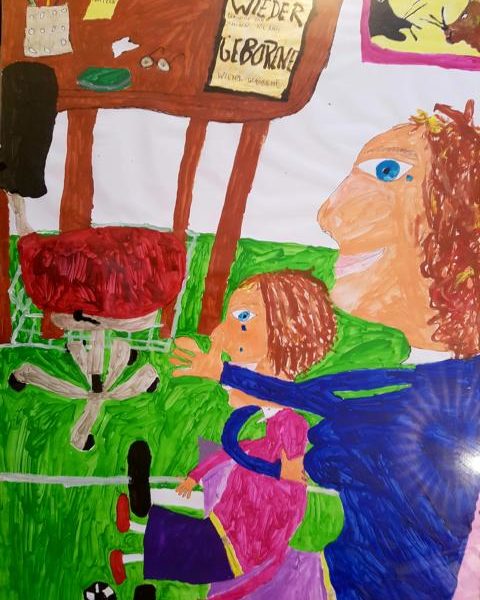It all started with my dog Tom. He was afraid of kids, their unpredictable movements and their skates. He barked at them wherever he discovered them. He was not to be distracted; special treats or scolding him wouldn’t help. Until then I hadn’t quite realized that he didn’t dislike kids but was just afraid of their movements and their loud voices. Going for a walk had become a stressful task and trying to avoid kids never really worked. One day I took all my courage and rang at my neighbours’ door. They had two kids, Suzie and Pete, aged 7 and 5 years old. When I asked her if one of her kids would accompany me and Tom on our daily walks she said yes. I didn’t have a good feeling with this “experiment” so I trained Tom to wear a muzzle. It was one where you could still feed him and so I smeared liver sausage inside of it. Instead of trying to get rid of the thing, he tried to lick out its tasty contents. After a week I started to take Suzie on one of my walks. She liked dogs, but was also afraid of them, especially when they were not on a leash. Tom barked at her. This changed, when she I gave her Tom’s treats. He followed her then like a donkey follows a carrot. She would keep her distance to him and every time he took her orders to “sit and stay” she would throw a treat in his direction. We went to the national recreation area. Suddenly 3 Labradors appeared running around and circling Suzie for they smelled her treats. She started to cry while I tried to usher the three animals away which wasn’t quite easy. After this incident Suzie didn’t want to go back the same way in fear of meeting more “wild dogs” again. We tried a different way home, but it was as difficult to avoid dogs running around free as it had been to avoid kids. When I asked Suzie where it was she wanted to go now, she suggested we should go to the park. There dogs had to be on a leash. The park became our sanctuary in the coming weeks. Here we collected leaves, grass and dandelion for my two guinea-pigs. Suzie relaxed when we were chatting and looking for the best dandelions. I admired her strength to still show up for our walks even though she was frightened by Tom’s sudden movements or by other dogs. It seemed to be a “courage training” for both of them. I could take off Tom’s muzzle but when I let him run free one time, he circled Suzie so we stopped letting him off the leash when she was with us. He craved her treats and in the mornings would whimper, when we passed her house and she wasn’t there. Then, one day, Pete wanted to see my guinea pigs and my dog. After our walk we went to Suzie’s house to fetch him. Suzie, who had already seen and stroked the guineas showed her brother how to hold them, sit down with them and feed them dandelion. I held Tom on his leash, so he couldn’t come too close nearby. I gave him treats for laying down and not trying to smell at the guinea pigs or the kids. Then, when we had put the guinea-pigs back into their cage, Pete sat on the floor opposite Tom. You could tell that he wasn’t afraid of the dog, just curious. I gave him a treat and to my astonishment he held out his hand to give it to Tom. -“It’s easy, just like you feed horses” he said proudly. –“Come on Suzie, you also stroke our neighbours` Jack Russel Terrier…”
But Suzie froze. She felt uneasy, shouted at the guinea pigs in their cage, took a children’s cartoon and hid with it in a corner. She was nearly crying and told me that she also wanted to stroke Tom, but couldn’t. I told her that it didn’t matter if she stroked him or not or if her brother was quicker in doing so. What mattered was that despite her fear she hadn’t given up to come on our walks. And that Tom and me liked her a lot and that he was whimpering in front of her house when she was at school. I told her, that sometimes in life there are things we take longer in doing them than others. And here comes my message for today: To have and show fear is not a lack of courage but quite the opposite. Everyone of us fears something. Most of us try to hide it and are ashamed of it. But this girl, she had had the strength to “walk on the path of fear” just to be with my dog, she was partly afraid of. In the end she thought that her brother would “steal her the show” by touching Tom first. And I bet, we are all a bit like her, comparing us to others all the time where no comparisons are needed. Everyone is unique in his way; we all have our strengths and weaknesses and the trick is to continue our way accepting these weaknesses and seeing our strengths. That’s the “real life story” I wanted to share with you, dear readers. And I wish you a Merry Chrismas and a happy and less demanding year 2021!
Renate Weber

